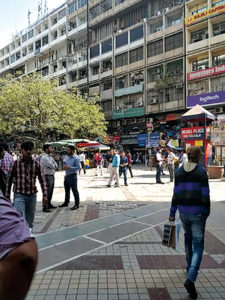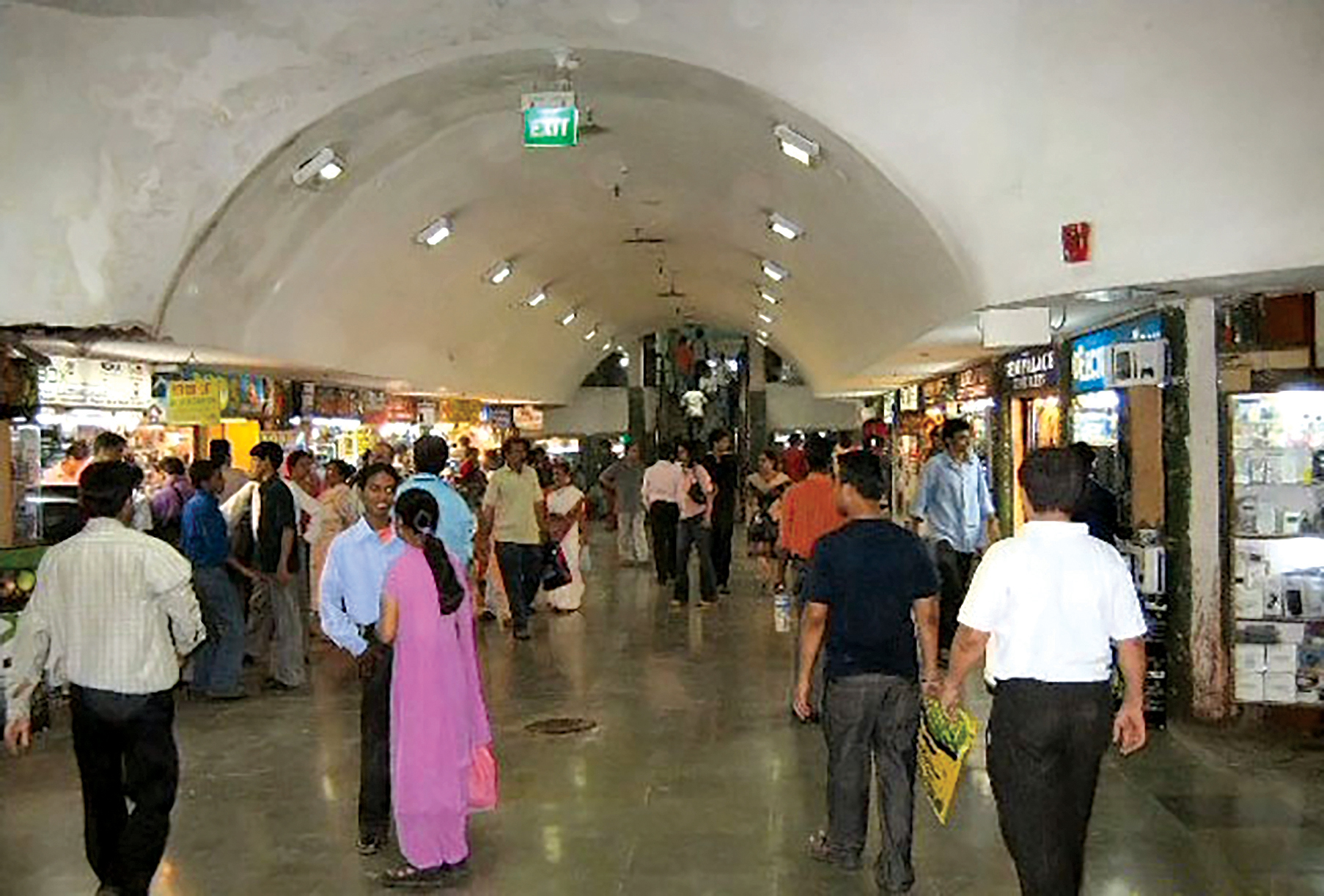If you can afford original high brands, well and good. If you can’t, Delhi has three markets that suit your pocket and your love for illicit goods
Walking down the halls and lanes of Palika Bazaar, under the bright lights on the ceiling and from the shops lining either side, one gets a whiff of stale Delhi pollution with the buzz of organised chaos constantly in the background. The market is quintessential to Delhi, but the wares in the stores belong to the high streets of fashion. Or so they say.
Delhi has been rightly coined the ‘counterfeit capital’ of India. A report in 2017 stated that the market size of India’s current duplicate trade stands at approximately Rs 45,000 crore, accounting for almost 75% of the revenue made from duplicate goods in the whole country.
Palika Bazaar
Palika Bazaar is one such infamous market that has been catering to the city’s counterfeit desires for years. A string of shops selling a variety of counterfeit items are lined up against the walls: watches, shoes, bags, clothes and even jewellery.
They’re mostly up for bargaining, while some stores aim for sales from fixed prices alone. But these are the slightly cheaper products – ones that are very obviously fake. These shirts and hoodies with fixed prices of Rs 350 or Rs 400 all sport misspelt logos, or upside-down symbols of the brands. These are usually bought two or three pieces at a time, the shop owners confirm.
The ones that stand to be bargained for are the better copies. Slightly more authentic looking, and could also possibly stand the test of time for longer. The better and fresher the copies, the steeper the price. When asked outright whether his fare is authentic, Ramnath*, vendor at a shoe store, simply smiles and says, “Aapko kya lagta hai?” (What do you think?) He in turn questions that if the items were in fact entirely authentic, would he be giving them away at throwaway prices? Nikes and Pumas and United Colours of Benetton are only a few of the fake brands on display.
To keep up sales and demand at stores in Palika Bazaar is far more difficult than at the actual brand stores, salesmen admit. This is despite the fact that lower middle class buyers are more likely to opt for fakes. Upper classes want the surety of getting the product from the actual brand, and paying an enormous amount matching that standard. Besides that, in areas like Palika Bazaar, there isn’t much room to develop a preference.

Ramnath rues that the competition is stiff, “since most shops are selling nearly the same assortment of clothes or shoes or whatever else it may be. Moreover, the prices are set at similar levels. Hence, when a buyer comes to our shop, if they are not happy with the price, they will just take two steps and find the next option.” He stresses that for this very reason, it is important for vendors like him to create an easy rapport with his customers to ensure their loyalty.
Gaffar Market
Gaffar Market stands proudly as the mecca of counterfeit electronics. The items on offer range from pirated CDs to sophisticated models of iPhones at a price three to four times less than that of the original. It’s no wonder the place is so popular!
“Madam yahon pe koi asli maal dhundne aata hi nahin!” says Aamir* (Madam, nobody comes here looking for original products), who owns a phone recharge store, but stocks much more than that. He explains that buyers are fully aware that they are purchasing fakes when they arrive at Gaffar Market to buy high brand phones or other electronics.
Aamir sells phones, sim cards, phone batteries, earphones, pen drives as well as pirated movie CDs. He says he sells his fake phones at 30-40% less than originals, and his customers have been fairly regular. “They don’t mind changing their phones if it doesn’t last, just as long as they don’t have to pay the full price at the time of purchase,” he says. These products are sold largely without bills or warranty of any kind.
Besides these, other electronics like air conditioners, cameras, televisions and refrigerators are also seen in these stores.
Another type of service offered here in this busy market is that of repairing phones for much lower rates than authorised service centres, sometimes even at less than half the price. These stores remove trackers from phones if need be, as well as unlocking locked phones. There’s a nefarious market for these illicit services as well.
Nehru Place
Another notorious spot for the trade of counterfeit electronics, Nehru Place is one of the largest and most famous computer markets in Delhi. It is certainly the most visited hub for all computer hardware and software needs in the city.
Benny, 23, a regular customer at Nehru Place, is perusing options for hard drives at one of the stores. For him, this conglomeration of over 1,000 shops known for their counterfeit products is reliable. “I’m a bit of a computer geek, he says, “so when I moved here from Kerala for my job, I wanted to find the most convenient place to get my electronics fixed. You go on the internet and the first thing it tells you is: Go to Nehru Place.”

Benny continues to elaborate that, if you know what you’re looking for, and are ready to pay close to the margins the shopkeepers are offering, they are honest with you. There are brand showrooms selling original products as well, and will give a buyer their honest take on what might be a better option for their devices.
“It’s unabashed,” Benny adds with a smile. “Everyone knows that some of the stuff is fake, but it’s convenient,” he explains. “And if you do your research you can actually purchase something reasonably durable, because let’s face it, nothing electronic can really be guaranteed to last, warranty or not.”
This entirely barefaced business of counterfeit products and duplicates has been running for years and thriving. Under everyone’s noses and with everyone’s knowledge. However the fact remains that it’s doing more good for Delhi’s pockets than bad. And so for the sake of our convenience, and our budgets, these three hotspots continue to flourish with abandon, as three brazen pillars of Delhi’s counterfeit trade.
(*names changed)





